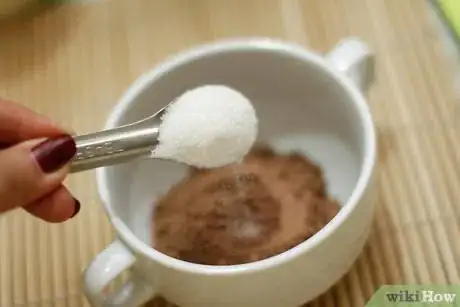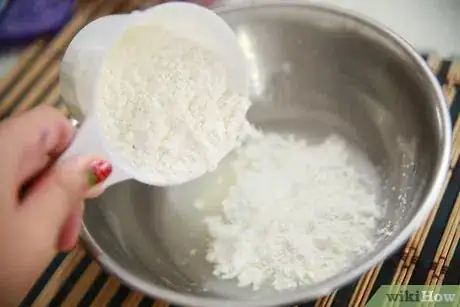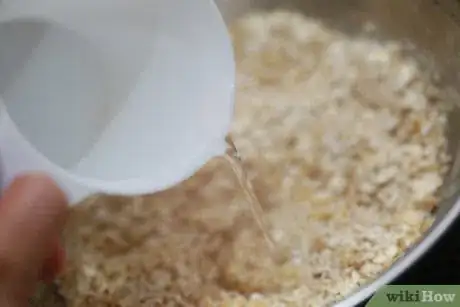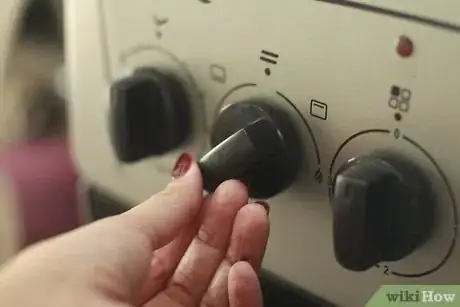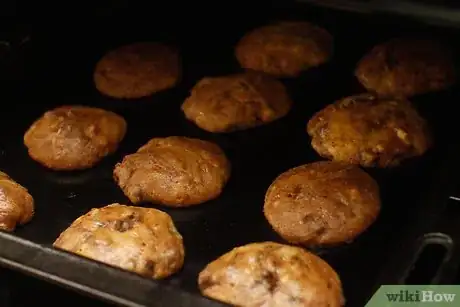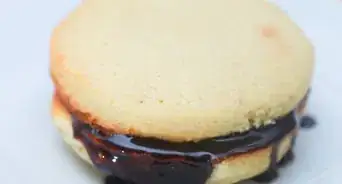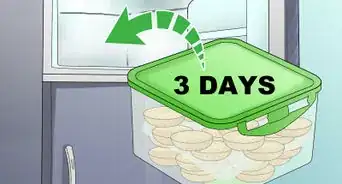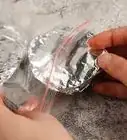wikiHow is a “wiki,” similar to Wikipedia, which means that many of our articles are co-written by multiple authors. To create this article, volunteer authors worked to edit and improve it over time.
wikiHow marks an article as reader-approved once it receives enough positive feedback. In this case, 90% of readers who voted found the article helpful, earning it our reader-approved status.
This article has been viewed 157,642 times.
Learn more...
At high altitude the air changes considerably; it becomes drier and holds less oxygen. At just 2,000 feet (609.6 m), the boiling temperature of water changes from 212 degrees Fahrenheit (100 degrees Celsius) to 208 degrees Fahrenheit (97.8 degrees Celsius). At 3,000 feet (914.4 m) or higher, cooking and baking must be adjusted to account for the changes in the air. About 1/3 of the United States lives in high altitude areas and may not know to adjust their baking to account for faster evaporation and an increase in the effectiveness of leavening agents. If you are baking cookies at high altitude, plan to adjust your recipe, in order to retain moisture and consistency. This article will tell you how to adjust a cookie recipe for high altitude.
Steps
-
1Do not over-beat your eggs. This will add too much air to the cookies. With high altitude baking, the low air pressure causes the air bubbles to expand faster. The cookies will rise quickly and then collapse, making them dry and brittle.[1]
- If your cookie recipe calls for egg whites, only beat them to a soft-peak.
-
2Reduce the amount of sugar you use in your recipe by 1 to 3 tbsp. (12 to 36 g) for each cup (191.6g) used. Reduce the sugar by 1 tbsp. (12 g) at 3,000 feet (914.4 m), 2 tbsp. (24 g) at 5,000 feet (1,524 m) and 3 tbsp.(36 g) at 7,000 feet (2,133.6 m).[2]Advertisement
-
3Reduce the amount of baking powder or baking soda you use by 1/8 tsp. (0.47 g) to 1/4 tsp. (0.94 g). Reduce baking powder by 1/8 tsp. (0.47 g) at 3,000 feet (914.4 m), 1/8 to 1/4 tsp. (0.47 to 0.94 g) at 5,000 feet (1,524 m) and a full 1/4 tsp. (0.94 g) at 7,000 feet (2,133.6 m). Metric reductions for baking soda are 0.54 to 1.07 g.[3]
-
4Increase the liquid in the recipe to counteract the dry flour. Add 2 to 3 tbsp. (29.6 to 44.4 ml) of water for every cup (99.4 g) of flour used at 5,000 feet (1,524 m). Increase it a further 1 to 2 tbsp. (14.8 to 29.6 ml) at 7,000 feet (2,133.6 m).[4]
- If you are cooking at 3,000 feet (914.4 m), it is not necessary to increase the liquid unless your recipe calls for a large amount of flour.
-
5Set your oven to bake 20 degrees Fahrenheit (6 to 7 degrees Celsius) hotter than the recipe suggests. The batter will set faster in a higher temperature and retain a moist center. This step will also save the cookies from being too dry because they aren't under the hot element for very long.[5]
-
6Decrease the baking time by 1 to 5 minutes. This will depend upon how long the cookies are supposed to bake as cookie recipes can call for cook times ranging from 5 to 20 minutes.[6]
-
7Check on the cookies to make sure they have been adequately baked at the higher temperature.
Community Q&A
-
QuestionAdding more flour and then adding water doesn't seem to make sense. I am at 7200 ft. Do I need to make all of the adjustments mentioned for cookies?
 Community AnswerAdding more flour is to help increase protein and structure for your baked goods at a higher altitude. Additional liquid is usually required, because water will evaporate more quickly at a higher altitude. "High altitude" begins around 3000 ft above sea level where baking is concerned, so at 7200 ft you may want to try adjusting your recipes and see what produces the best results for you.
Community AnswerAdding more flour is to help increase protein and structure for your baked goods at a higher altitude. Additional liquid is usually required, because water will evaporate more quickly at a higher altitude. "High altitude" begins around 3000 ft above sea level where baking is concerned, so at 7200 ft you may want to try adjusting your recipes and see what produces the best results for you. -
QuestionHow do I adjust a cookie recipe for a high altitude if my cookies always come out thin?
 Community AnswerI suggest using half of the recommended amount of baking soda and half of the baking powder in the recipe.
Community AnswerI suggest using half of the recommended amount of baking soda and half of the baking powder in the recipe. -
QuestionMy recipe calls for both baking powder and baking soda for 3 cups of flour and 6 cups of oatmeal; should I use both?
 Community AnswerYes. Follow the recipe. Many baking recipes call for both baking powder and soda.
Community AnswerYes. Follow the recipe. Many baking recipes call for both baking powder and soda.
References
- ↑ https://www.allrecipes.com/article/high-altitude-cake-baking/
- ↑ https://www.allrecipes.com/article/high-altitude-cake-baking/
- ↑ https://www.bettycrocker.com/how-to/tipslibrary/baking-tips/baking-cooking-high-altitudes
- ↑ https://www.bettycrocker.com/how-to/tipslibrary/baking-tips/baking-cooking-high-altitudes
- ↑ https://extension.colostate.edu/topic-areas/nutrition-food-safety-health/high-altitude-food-preparation-p41/#cookie
- ↑ https://www.allrecipes.com/recipe/130736/ultimate-high-altitude-chocolate-chip-cookies/

